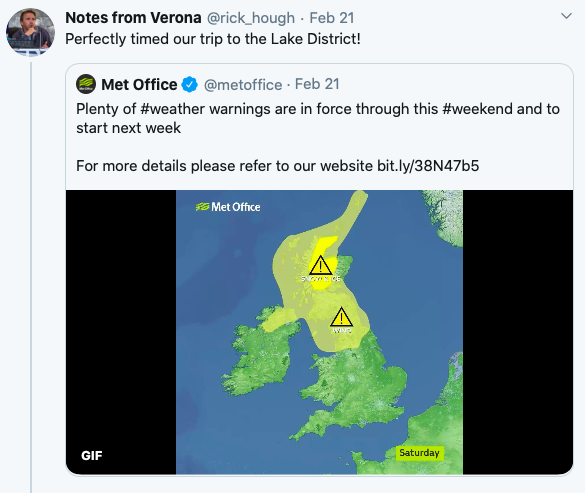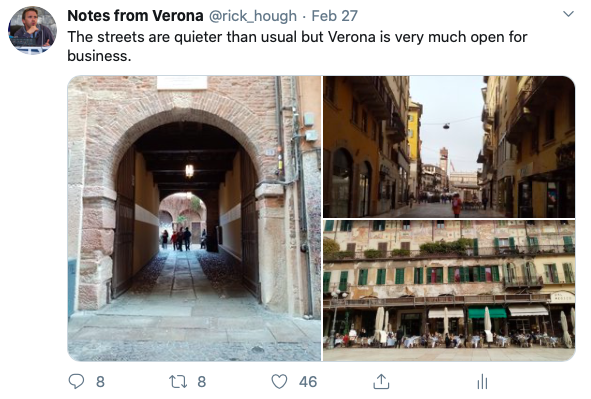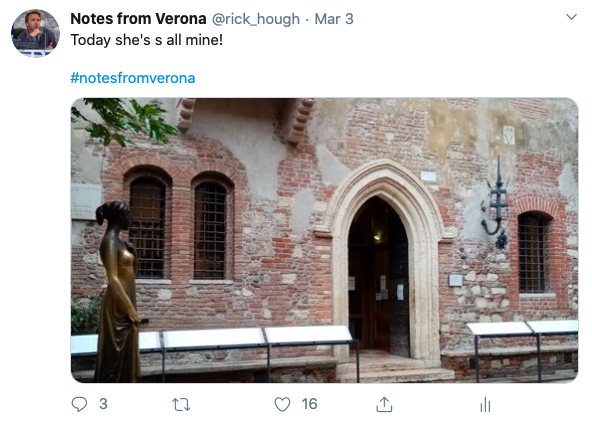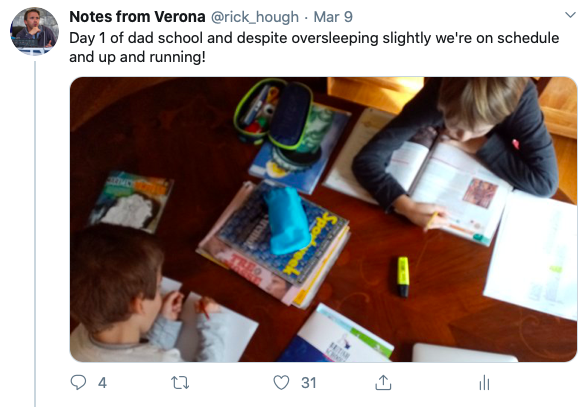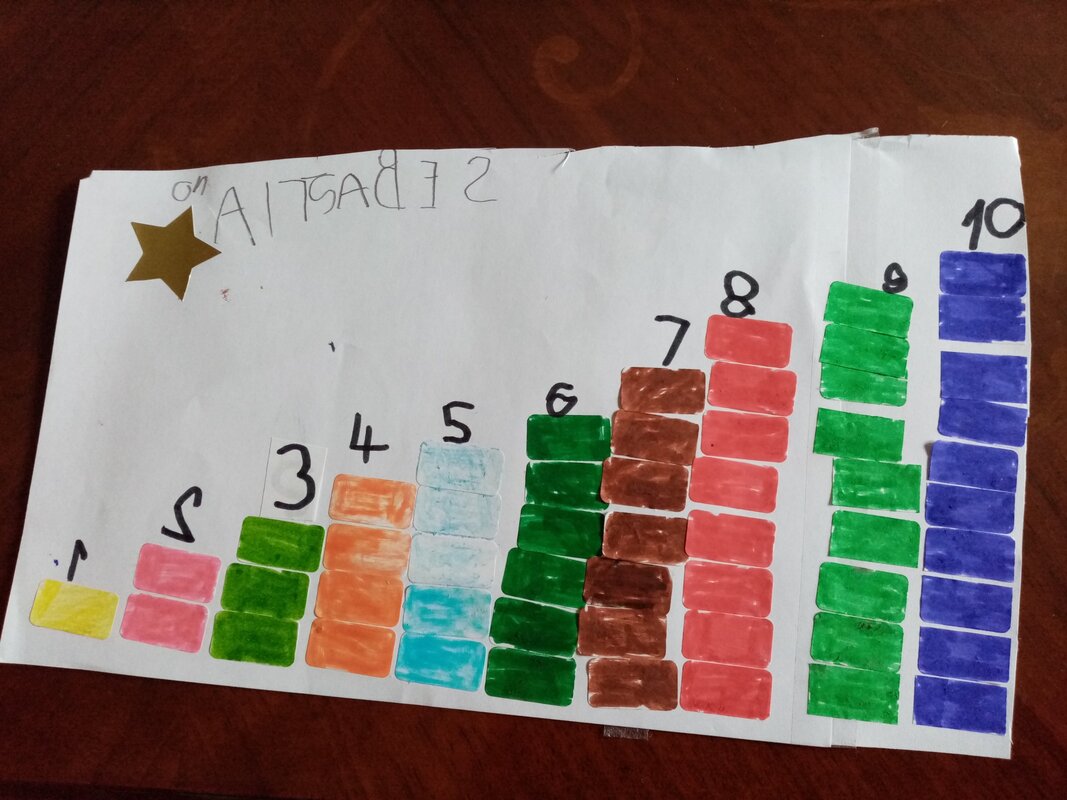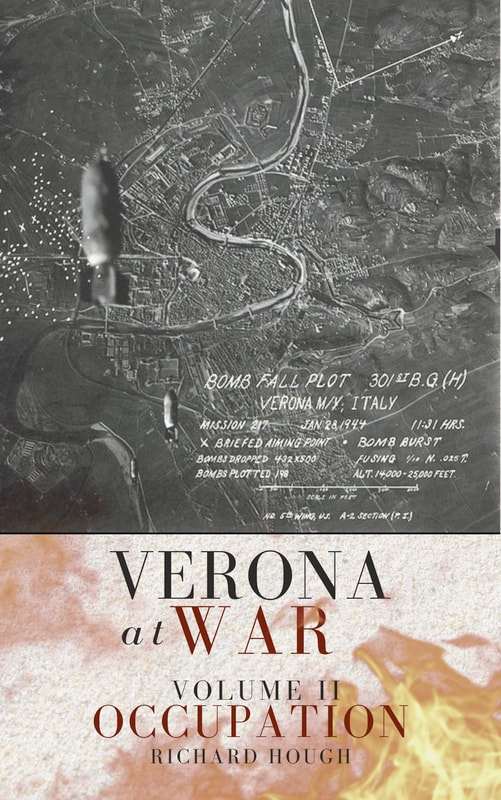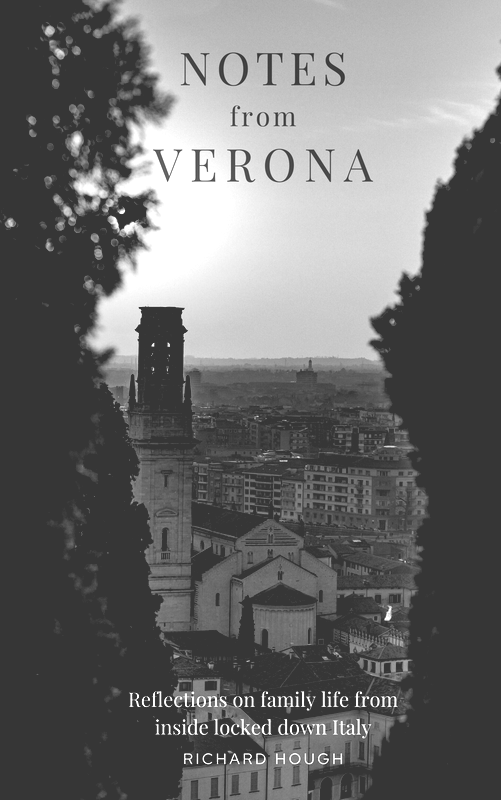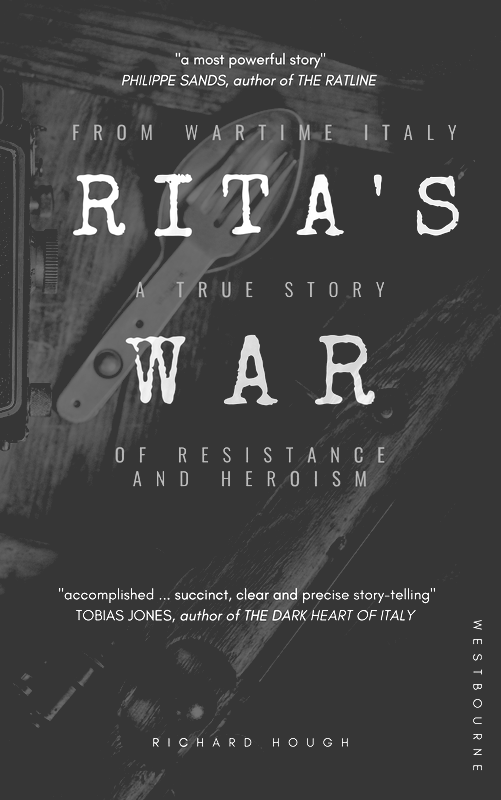|
From inside locked-down Italy, some reflections on family life in Verona
21 February 2020
It was Carnival season and in Verona schools were closed for a few days holiday. Taking advantage of the break, I travelled from Verona via Manchester for a family get together in Kendal with my eldest son (11). My biggest concern at this point was the severe weather warnings that were in place across northern England and the rapidly rising River Kent, which seemed to be encroaching on the bedroom window of the riverside hotel where we were to spend the weekend! That all seems like a very long time ago now.
The following day the Italian government announced the suspension of all Serie A matches in the Lombardy and Veneto regions, including the game between Hellas Verona and Cagliari scheduled for 23 February, the first tangible indication of the disruption that was to follow. While of course, at times like this football is hardly the most pressing concern, it nonetheless provides a useful bellwether from which we can extrapolate the mood and response of a nation
At this point the virus was contained to 10 towns in northern Italy, where there had been approximately 50 reported cased and two deaths. Those towns were the first in Italy to experience the lockdown. While the Italian stock market plunged, speculation began to mount that Serie A matches would be played behind closed doors. Verona, at this point, wasn’t directly affected. By 25 February the number of confirmed cases had leapt to 300, with 12 reported fatalities. While a large-scale testing operation had been initiated, the identity of patient zero remained a mystery. Despite the rapidly escalating crisis, mixed messages continued to cause confusion and frustration. The seeming incapacity of the football authorities to come to a clear and coherent decision about the forthcoming fixture list was a particular cause of frustration in a nation where football is a religion. By the time we travelled back to Verona on 26 February, I was anxious to be reunited with the rest of my family after what seemed like a very long time apart. My youngest (5) had been spending a couple of days with his nonni in Tuscany, while my wife had business commitments in the UK that were subsequently cancelled because of the unfolding crisis. The flight back to Verona that day was half empty, a further indication of what was to follow. As we disembarked the plane, our temperatures were checked by red cross volunteers and as we travelled through the city on our way home that afternoon, the mood seemed quieter than usual.
The next day I took a walk around the city. Without the usual throngs of tourists, the streets of Verona were deserted, but the locals were quietly going about their business as best they could.
The next day the football authorities circulated a revised fixture list for the matches scheduled for March. Finally, a decision had been taken. The crisis was escalating, but at least we’d have some football to keep us entertained. That weekend (29/30 February) we travelled down to Tuscany, passing through a blizzard on the high mountain pass that would take us into Garfagnana. Rumours were circulating that schools in Lombardy, Emilia Romana and Veneto would remain closed for a further eight days. Across northern Italy parents waited for news with bated breath. When the decision to close the schools was confirmed, my wife and I decided to travel back to Verona and leave our kids with their grandparents in Tuscany. Meanwhile rumours and counter rumours continued to circulate. Monday night’s game would go ahead as planned. It would go ahead but behind closed doors. It would be cancelled. A meme even circulated suggesting that the match would go ahead with the fans but without the players! In the end, the game between Sampdoria and Verona was cancelled at the very last minute, causing Verona’s captain to describe the situation as an embarrassment and to accuse the football authorities of treating players like playthings. His complaint wasn’t that the game was cancelled, but that the authorities waited until the very last minute to make a decision. That week the situation in Verona seemed surreal. The city desperately wanted life to continue as normal, but something wasn’t quite right. With all my teaching commitments cancelled, I’d planned to do a few days writing at the library, but by the end of the week even the library was closed. With my coaching commitments also suspended, I wandered somewhat aimlessly around the city (so what’s new?). At Juliet’s balcony, a place I would normally avoid, I had the whole courtyard to myself!
By Friday and Saturday that week (6/7 March), Verona seemed to be back to its sunny, bustling best. On Friday night I went out for a few drinks and was pleased to see the bars were busy and people were in good spirits – an air of high-spirited defiance! The situation with the fixture list was looking increasingly shambolic, but I was optimistic that we would at least have some football to enjoy in the coming weeks. Indeed, on 6 March (just 4 days ago), a fixture list which involved Hellas Verona playing four games in 15 days looked viable.
On Sunday our plan was to travel down to Tuscany to pick up the kids. Regardless of whether schools would open on Monday, our intention was to be reunited as a family and to give the nonni some respite after a couple of weeks with their hands full. We made plans to travel down to Tuscany on Sunday morning (it’s about a 3 and a half hour drive from Verona to Corfino) and to travel immediately back up to Verona that afternoon, keeping our contact with my mother and father-in-law to an absolute minimum, after all we were travelling from a high risk area and they were in a high risk category. Late on Saturday evening came the most (in fact probably the only) traumatic moment of the crisis so far for us. As we were preparing for bed, news began to circulate of an imminent lockdown of northern Italy. Without clearly understanding what the practicalities of this meant, we immediately decided to go and get our kids. We hastily packed a few items for the journey, made a few phone calls and set off into the night. By the time we crossed into Emilia-Romana, we had the absurd notion that our path out of the region and into Tuscany would be blocked and that we’d also be prevented from returning to Verona. Visions of military-style roadblocks and weeks spent in quarantine in some remote community hall crossed our minds. With tears in our eyes, we decided to turn around and head back to Verona before the lockdown came into force, trying desperately to come to terms with not seeing our kids again for a month. As we came off the motorway to turn around, we noticed a police patrol car at the tollbooth. We explained the situation and asked the machine-gun totting officers what we should do. They left us with the distinct impression that we need not worry about roadblocks and quarantine, for such measures were not anticipated to be implemented during the night. And so we set off again, toward the snow-capped mountain pass that would take us to Corfino. We arrived at about two in the morning, ushered our confused kids into the car and immediately headed back towards Verona, this time taking the longer route that would take us towards Lucca, then Firenze and Bologna, avoiding the treacherous mountain pass. On that long drive back to Verona, we tuned into Prime Minister Giuseppe Conte’s sobering press conference in which he confirmed that he had signed off plans to strictly limit movement in and out of large areas of Italy, including Venice and Milan, for nearly a month. By now there had been 7,000 confirmed cases in Italy and 360 fatalities. It was nearly 6 am on Sunday morning when we arrived back in Verona. Exhausted but together. Perhaps it was an over-reaction. We could, in all likelihood, have travelled on Sunday without the need to take our kids away from their nonni in the dead of night. But for a few hours that evening, I caught a glimpse of what enforced separation from your kids might feel like. Back in Verona, the mixed messages and confusion continued. Some matches in Serie A and B went ahead that weekend, as well as Monday evening’s game between Sampdoria and Verona, but in the surreal surroundings of an empty stadium and against the backdrop of a country in crisis. With all further teaching commitments cancelled and the boys at home until the 15 March, I was anxiously contemplating the two weeks of home-schooling that lay ahead. For now, though, we took some comfort from the fact that we were at least outside the red zone and that the most draconian restrictions didn’t apply to us.
The following day (yesterday) we began our first day of home schooling. To my eldest son’s chagrin, I had prepared a detailed timetable of how we would spend our time. His teachers had helpfully provided some instructions on the online register, giving us a framework around which to focus our studies.
While I would never have chosen this outcome, the circumstances have conspired to create a situation in which I could put all my other commitments and preoccupations to one side (teaching, coaching and writing) and concentrate entirely on just being a dad. Perhaps things wouldn’t be so bad after all! And so, the first day passed productively and in good spirits (aside from the tantrum during a kickabout in the garden - I was never offside). The kids have worked hard and got involved in things they wouldn’t otherwise have done (preparing and serving lunch for example). Then late on Monday night Conte delivered another emergency statement. All of Italy was now a “red zone”. Schools across Italy would be closed until 3 April. That night I had a moment of doubt as I played out in my mind the worst case scenarios for my country, for my city, for my family. But by morning my doubts had subsided and the rationalist in me once again resolved that we would pass through the crisis unscathed. And day two has proceeded much the same as day one. My eldest has plenty of work to do in subjects as fascinating as verb conjugations, river flow, romantic art and the books of the bible (I directed him towards Psalm 23: 4, which seemed appropriate in the circumstances). And I’ve enjoyed spending more quality time with my kids, helping my youngest form numbers and letters, painting, reading and playing – things which would ordinarily have got lost in the daily demands of life, school, work, after-school activities, etc. And while they spend an hour or two in the garden, playing with the other kids from our block, I have a moment to catch my breath, and to reflect on these grave days that we’re enjoying together. |
AboutRichard Hough writes about history, football, wine, whisky, culture + travel and is currently working on a trilogy about wartime Verona.
|
